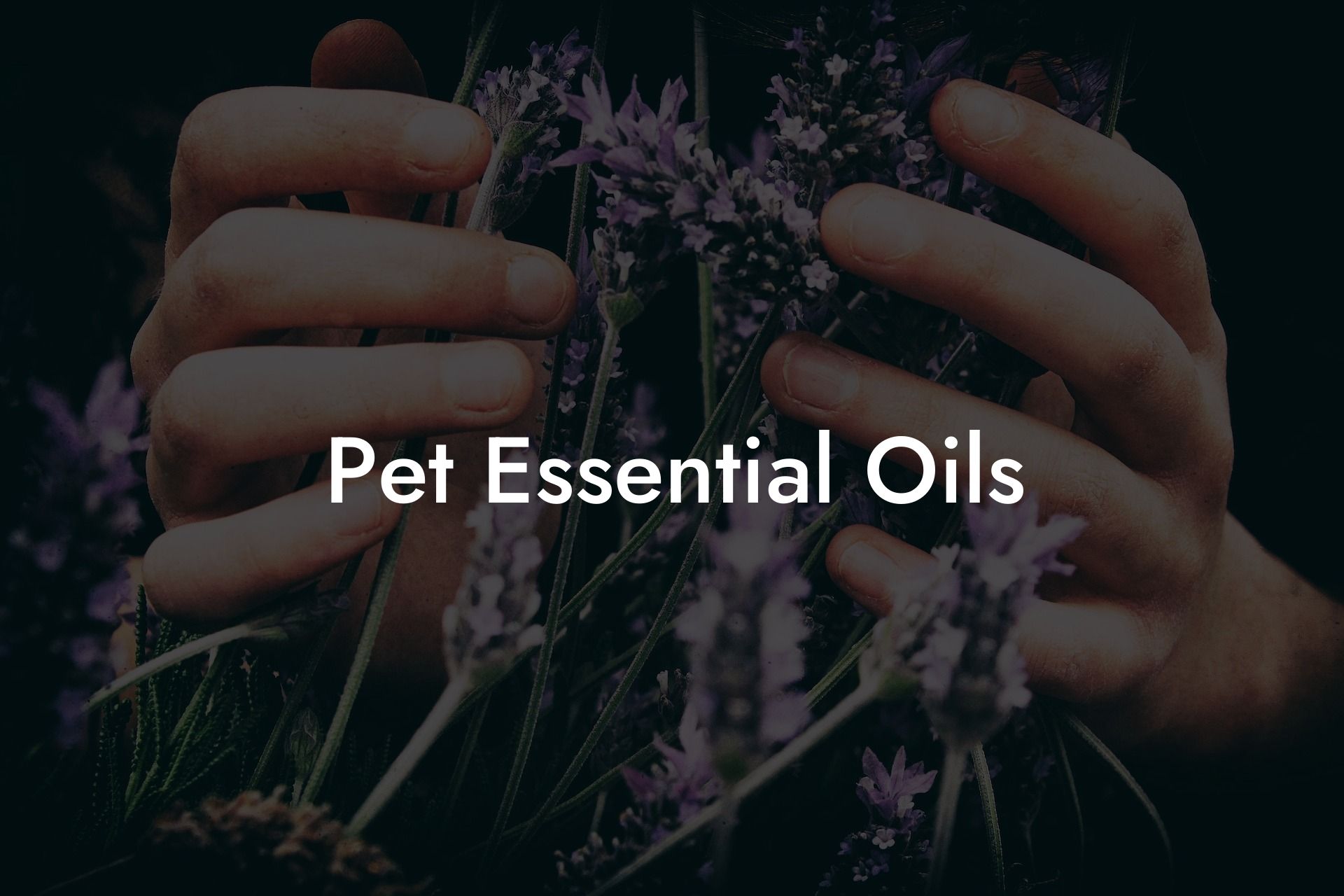Pet owners around the world are constantly seeking new and effective ways to improve their beloved pets’ health and happiness. Pet essential oils offer a natural, holistic option for supporting and enhancing the wellbeing of our furry friends. In this comprehensive guide, we delve into the world of pet essential oils, exploring their benefits, safety precautions and helpful tips to ensure the best care for your animals.
Table of Contents
Benefits of Essential Oils for Pets
When used appropriately, pet essential oils can provide numerous benefits to animals, including:
- Reduced anxiety and stress: Certain essential oils are known to have calming properties, which can help pets cope with stress or anxiety from events such as thunderstorms, fireworks, traveling, or separation.
- Improved digestion: Some essential oils can support digestive health and relieve minor discomfort from upset stomachs or gas.
- Immune system support: Many essential oils have antibacterial, antiviral, or antifungal properties, which can assist in promoting a healthy immune system.
- Insect repellent: Essential oils are commonly used as an alternative to chemical bug repellents, providing natural protection against fleas, ticks, and mosquitoes.
- Joint and muscle health: Several essential oils have anti-inflammatory effects that may help to reduce pain associated with arthritis or other joint issues.
Essential Oils Safe for Pets
It is important to choose pet-safe essential oils, as some may cause harm to certain animals. Some essential oils safe for use with dogs include:
- Lavender
- Chamomile
- Ginger
- Frankincense
- Cedarwood
It is crucial to note that cats have a more sensitive metabolism and are more susceptible to negative reactions from essential oils. Safe essential oils for cats include:
- Lavender (in small amounts)
- Frankincense
- Helichrysum
When in doubt, consult with your veterinarian to determine the best essential oils suited for your specific pet.
Precautions and Safety Tips
Using essential oils for your pets requires caution and attention to safety guidelines, such as:
- Quality matters: Choose high-quality, therapeutic-grade essential oils from reputable sources, like Oshu Oils, to ensure the best and safest experience for your pet.
- Dilution is key: Always dilute essential oils with a carrier oil, such as coconut oil or olive oil, before applying directly to your pet to minimize the risk of irritation or adverse reactions.
- Go slow: Introduce a new essential oil gradually to your pet, allowing them to acclimate to the aroma, and observe their reactions closely.
- Never force exposure: If your pet is uncomfortable or has a negative reaction to a particular oil, discontinue its use and consult with your veterinarian.
- Avoid oral administration: Do not allow your pet to ingest essential oils, as this can cause serious problems, particularly for cats.
Pet Essential Oils Example:
To help your dog cope with separation anxiety, a calming essential oil blend could be applied before you leave the house. Mix 2 drops of lavender and 2 drops of chamomile with 1 tablespoon of carrier oil. Rub the blend onto your hands and gently massage it into the back of your dog’s ears, avoiding the face. Make sure to apply this in a calm environment and observe your dog’s reaction. Should they show signs of discomfort, discontinue use and consult your veterinarian.
Incorporating pet essential oils into your pet’s care routine can improve their overall wellbeing and quality of life with remarkable benefits. We hope this guide has been helpful and informative in discovering the perfect essential oils for your furry friends. We invite you to explore other articles on Oshu Oils that can further elevate your knowledge in the world of essential oils and aromacology. Don’t forget to share this with fellow pet owners and browse our stunning selection of artisanal Oshu Oils products to enhance your pet’s wellness journey.





















